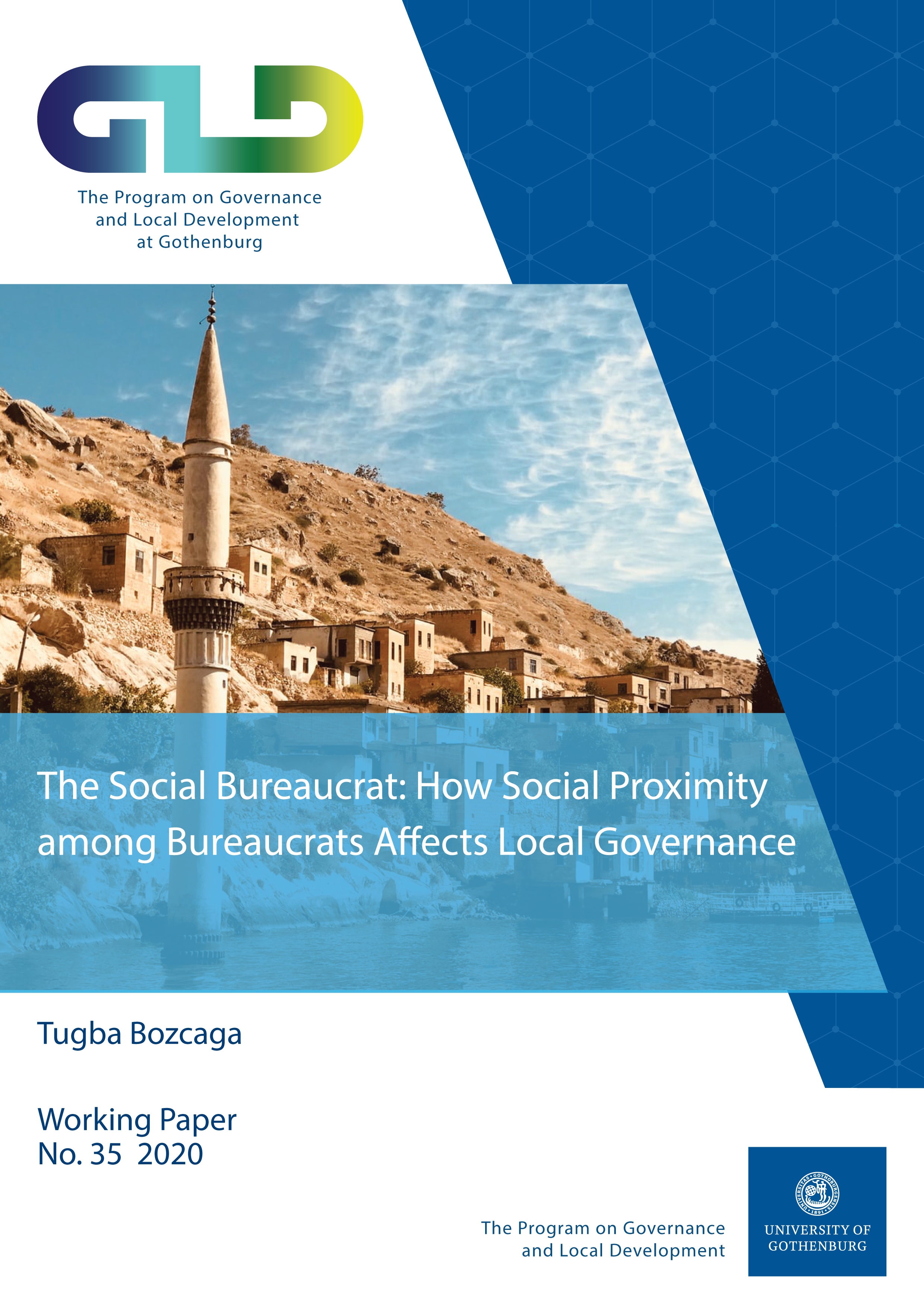No.35 The Social Bureaucrat: How Social Proximity among Bureaucrats Affects Local Governance
Tugba Bozcaga
Abstract
Most studies that examine subnational variations in public services associate low government performance with a lack of accountability. I instead offer a capacity-based explanation. Specifically, I develop a theory based on bureaucratic efficiency and argue that bureaucratic efficiency increases with social proximity among bureaucrats, bureaucrats’ informal ties with other bureaucrats in their jurisdiction because informal ties do not only serve communication or socialization purposes but also decrease transaction costs associated with the production and allocation process of public services. Testing the observable implications of this theory, I find that social proximity, as proxied by geographic proximity, increases bureaucratic efficiency. However, in line with theoretical expectations, geographic proximity is less likely to lead to high bureaucratic efficiency in socially fragmented network structures or when there are ethnic divisions between bureaucrats. Six months of fieldwork in regions of Turkey with different political and ethnic geographies inform the descriptive inferences underlying the theory and its observable implications. I leverage a geographical regression discontinuity design to test my theory. My empirical tests employ novel administrative data from 30,000 villages and 970 districts in Turkey, geospatial indicators constructed using spatial analysis tools and satellite images, and antenna-level mobile call detail records. This study advances research on public goods provision by studying local public services outside of citizen-centered accountability explanations, instead of revealing capacity-driven sources of government performance.
